
Press Center

Decision time for world’s governments on new global treaty for the ocean
New York: Today governments resume negotiations at the United Nations in New York to finalize a new High Seas Treaty to ensure the conservation and sustainable use of marine biodiversity of areas beyond national jurisdiction. The two-week Intergovernmental conference is taking place from 20 February to 3 March 2023 and is a resumption of negotiations from August 2022, when governments ran out of time. Covering half of the planet, the High Seas vibrant marine ecosystems, life that is vital to the global food supply, and the planet’s climate system. However, it has been plagued by poor or patchy governance, and with only 1.2% protected, vast High Seas areas are open to unsustainable exploitation. This new treaty aims to address these shortcomings and offers a historic opportunity to put in place game-changing new measures for the ocean, including establishing highly and fully protected areas and strengthening assessment and management of human activities. The recent global commitment to protect at least 30% of the ocean by 2030 (the “30x30” goal) offers an ambitious backdrop for ensuring this new treaty provides the legal tools to turn the target into a reality. The pressure is now on governments to ensure the treaty that is finally agreed upon will be ambitious enough to result in a healthy ocean rather than a degraded one. Key issues that still need to be addressed at the meeting include: measures to ensure that the new treaty can deliver effective new marine protected areas rather than “paper parks”; safeguards to avoid harm arising from human activities affecting the high seas and the deep seabed; a strong institutional framework to ensure effective implementation and compliance; decision-making rules to avoid enabling one or two countries to block progress; and critical finance and equity issues related to capacity building and the sharing of benefits from marine genetic resources. "We came frustratingly close to getting this treaty over the line in August at what was supposed to be the final round of negotiations. With the accelerating climate and biodiversity crises, time is not a luxury we have to put ocean health back on track," said Sarah Bevis from the High Seas Alliance. "This time round we need to seize the moment and get an ambitious treaty over the finish line, so we can roll up our sleeves and work on the crucial tasks of getting the treaty ratified and implemented." Additional Quotes from High Seas Alliance member organizations: Dr Laura Meller, Oceans Campaigner and Polar Advisor, Greenpeace Nordic said: "The oceans all life on Earth. Their fate will be decided at these negotiations. The science is clear. Protecting 30% of the oceans by 2030 is the absolute minimum necessary to avert catastrophe. It was encouraging to see all governments adopt the 30x30 target last year, but lofty targets mean nothing without action." "This special session taking place so soon after the last round of negotiations collapsed gives us hope. If a strong Treaty is agreed on the 3rd of March, it keeps 30x30 alive. Governments must return to negotiations ready to find compromises and deliver an effective Treaty. We’re already in extra time. These talks are one final chance to deliver. Governments must not fail." Trevor Jones, Campaign Manager, Only One said: "Without protections for the high seas, we cannot hope to have a healthy ocean, and without a healthy ocean we put marine life, coastal livelihoods, and global food stability at grave risk. Millions of people from around the world have spoken out: They want a strong High Seas Treaty, and they’re counting on their leaders to finally get the job done." Liz Karan, Director of Pew’s Ocean Governance Project said: "The high seas diverse marine life and unique ecosystems critical to the health of our ocean and planet. Countries must seize this opportunity to finalize a robust high seas treaty to establish highly protected, cross sectoral high seas MPAs for the benefit of current and future generations." Jennifer Morris, CEO of The Nature Conservancy said: "Ensuring legal protection for the vast areas of open ocean beyond national jurisdiction, and actively acknowledging the importance of addressing this situation, is a pivotal step in moving toward our ambitious ‘30x30’ target in the new UN Global Biodiversity Framework. Ensuring a successful outcome from the New York negotiations, in the form of a formally agreed and legally binding High Seas Treaty, is imperative to meet the collective commitment to conserve 30% of the Earth’s ocean this side of 2030." Gladys Martínez, Executive Director of the Interamerican Association for Environmental Defense (AIDA) said: "The high seas urgently needs a governance framework. We look forward to states concluding a strong and ambitious treaty during these two weeks." Fabienne McLellan, Managing Director OceanCare said: "We have high hopes that governments will find a way to finalize the High Seas Treaty during the resumed session of IGC 5. Countries must understand that it would be grossly negligent to once again fail to conclude an agreement to conserve marine diversity in areas beyond national jurisdiction. The climate and biodiversity crises are in full swing, and the ocean is our ally, not an infinite resource to be exploited. It is not only important that the Agreement is finalized, but what is agreed needs to make a tangible difference in protecting biodiversity. Against this backdrop, it is difficult to imagine that no agreement will be reached - the agreement is vital for marine biodiversity, a healthy ocean and thus also for us humans". PRESS S Patricia Roy, + 34 696 905 907 - CET Mirella von Lindenfels, +44 7717 844 352 - EST
Read more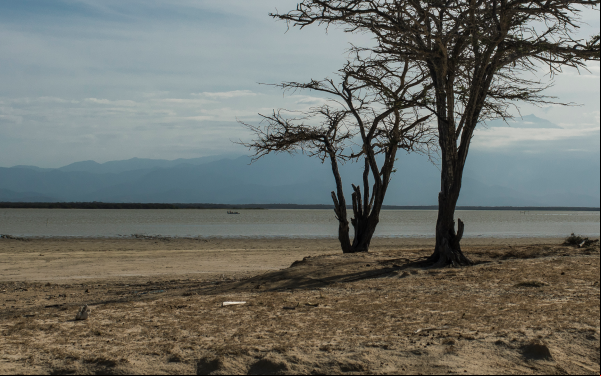
Swiss OECD Point of calls on Glencore to comply with due diligence on coal mine in Colombia
Switzerland’s National Point (N) for the Organization for Economic Cooperation and Development (OECD) recommended that the multinational as the sole owner of the Cerrejón mine in Colombia ensure “its policies and due diligence measures promote responsible business conduct at Cerrejón” in its final statement on the complaint filed against Glencore. The N further implored Glencore to maintain a dialogue with NGOs and representatives of the indigenous Wayúu and Afro-Colombian communities affected by the mine's operations. In January 2021, a coalition of national and international organizations—comprised of GLAN, CAJAR, AIDA, CINEP, Ask! ABColombia and Christian Aid Ireland—filed five complaints with the OECD Ns in Ireland, the United Kingdom, Switzerland, and Australia to denounce the various detrimental impacts of the Cerrejón mine, operated by Carbones del Cerrejón. The coalition detaile the disastrous impacts on the lives and human rights of the indigenous, Afro-descendant and other rural populations of La Guajira resulting from operation of the Cerrejón mine and Carbones de Cerrejón’s lack of due diligence in its operations, leading to non-compliance with OECD guidelines for multinational companies. The coalition filed the complaints against ESB (Electricity Supply Board), the Irish state-owned company that buys coal from the Cerrejón mine; CMC (Coal Marketing Company), based in Dublin, Ireland, which markets the coal from Cerrejón, and the multinational mining companies that tly own Carbones del Cerrejón: BHP, Anglo American and Glencore. In response to the coalition’s complaints, the Swiss N noted that "the Australian and British Ns will publish, in accordance with their rules of procedure, Final Statements regarding BHP and Anglo American respectively.” The complaints in Ireland are still pending. The Swiss N’s statement did not address the main duty of its mandate—to ensure the implementation of the OECD Guidelines for Multinational Enterprises. Instead, the Swiss N statement merely reiterated generic existing duties and did not make substantive recommendations in response to the details or the gravity of the Cerrejón’s human rights abuses and violations documented in the complaint. The Swiss N conducted its review with serious irregularities and asymmetries in its treatment of the parties. The Swiss N failed to provide the affected Wayuu indigenous and Afro-descendant communities with access to information about the review or any guarantees of participation in the review. These asymmetries and irregularities resulted in Glencore’s impunity for the serious human rights violations committed by the mining operations of Carbones del Cerrejón. Our coalition eventually chose to withdraw from the process in protest of the Swiss N’s disfavorable treatment of the coalition and favorable treatment of Glencore. Our experience with the Swiss N highlights how the complex web and architecture of impunity and asymmetry in international processes favors multinational companies, resulting in abysmal gaps in justice for victims of multinational companies’ human rights abuses and violations. Given the enormity of the Swiss N’s incompetence, negligence, and inconsistency in its functions, we reject the N’s final statement which suggests that GLAN and the coalition are to blame for failure of the mediation process. In this statement, the N ignores the impacts of its own deficiencies on the mediation process. The way the Swiss N in structured the mediation process placed a greater burden on the complainant’s ability to access and participate in the mechanism than on Glencore. Despite these disadvantages, the coalition participated with the utmost diligence and good faith throughout the entire procedure. The Swiss N’s incompetence in this instance is part of its pattern of favoritism of multinationals. For example, the Swiss N mishandled the complaint against Sygenta for its harm to farmers in India. The N's improper practices led Marcos Orellana, UN Special Rapporteur on Toxic Substances and Human Rights, to state that the Swiss N set “a bad precedent that underlines the weaknesses of the National Points for the OECD Guidelines.” Because the Swiss legal ability mechanisms do so little to regulate the conduct of Glencore—a company with a history of corruption and serious allegations of human rights abuses and violations associated with its global activities—the Swiss government is implicated in Glencore’s abuses. Although the OECD guidelines are voluntary for companies, countries that adhere to guidelines make a binding commitment to implement them. The Swiss N's inadequate handling of this complaint and the Swiss government’s failure to comply with its functions and the obligations relating to respect for human rights, leads us to question degree of the Swiss government’s complicity in these abuses and how this complicity creates an environment of tolerance for corporate violations and abuses. What is clear is that the OCED’s voluntary mechanism has become a way to mask corporate violations and facilitate corporate impunity. Although the Swiss government does not grant real and effective access to justice for victims of Glencore’s violations as an investor in Carbones del Cerrejón, Glencore is able make use of its guarantees as an investor—as established in the Foreign Investment Protection Agreement between Colombia and Switzerland—to sue the Colombian government over a court ruling that protected the human rights of the Wayuu people from Carbones del Cerrejón’s actions. In the face of this asymmetry in justice between the parties, it is concerning that Colombia choses to maintain this agreement. We reiterate the inadequacy of non-judicial mechanisms to hold multinational corporations able. Cases such as this highlight the need for binding due diligence legislation and a treaty regarding companies and human rights that includes real ability for abuses resulting from seemingly unlimited transnational corporate power. Signed: Interamerican Association for Environmental Defense (AIDA) José Alvear Restrepo Lawyers' Collective (CAJAR) Center for Research and Popular Education (CINEP) Christian Aid ASK ABColombia Global Legal Action Network (GLAN) press : Victor Quintanilla (Mexico), AIDA, [email protected], +525570522107
Read more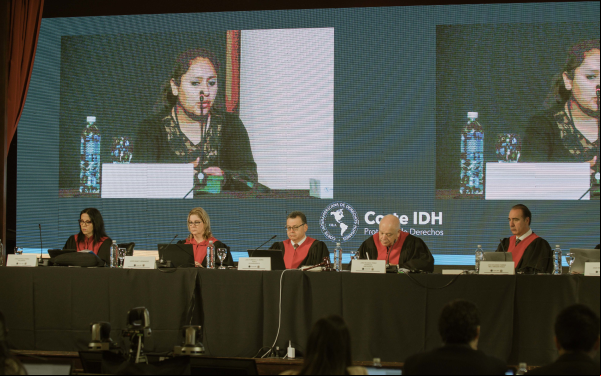
Organizations, coalitions, academia, and specialists victims of toxic contamination in La Oroya
Experts filed 15 amicus briefs before the Inter-American Court of Human Rights upholding the central argument of the case: that the government of Peru is responsible for violating the human rights of residents of La Oroya for the lack of urgent and effective actions to address pollution from a metal smelter, and its harmful effects. San José, Costa Rica. Organizations, coalitions, academia, and specialists presented 15 legal briefs (Amicus curiae) before the Inter-American Court of Human Rights to the case of residents of La Oroya against the government of Peru, for human rights resulting from a metal plant spewing toxic pollution into the Andean city for nearly 90 years. The briefs contain solid evidence that the central argument of the case: that the Peruvian government—by not taking urgent and effective action to address the pollutions and its effects—is responsible for the violation of the rights to life, health, personal integrity, childhood, and a healthy environment of the residents of La Oroya. This argument as expressed in a public audience on October 12 and 13, when the international court heard from witnesses, experts, victims, and government representatives. The briefs, sent to the Court between October 11 and 28, demonstrate that the importance of the case sures the Peruvian context and represents a historic opportunity to establish a key precedent in Latin America, and the world, that strengthens the right to a healthy environment and government’s role supervising business activities. One of the briefs was presented by the University Network for Human Rights in partnership with a of experts: five former authorities from the Inter-American Commission on Human Rights (Tracy Robinson, James Cavallaro, Paulo de Tarso Vannuchi, Flávia Piovesan and Paulo Abrão) and three former Special Rapporteurs to the United Nations (John Knox, James Anaya, and Juan Méndez). Briefs were presented by Peruvian organizations— including the Technical Committee for Environmental and Human Health and the Civil Society Platform on Business and Human Rights—as well as from other countries in Latin America—the Mexican Center for Environmental Law (Mexico), Defensoria Ambiental (Chile), and Justice for Nature (Costa Rica)—and international organizations such as Earthjustice and The Center for Justice and Environmental Law. Furthering the international scope of the hearing, The Working Group for Strategic Litigation of Red-DESC and the United Nations Working Group on Business and Human Rights. From the academic sector, came from the Human Rights Research and Education Center of the University of Ottawa (Canada), the Clinic for Human Rights of the Postgraduate Law School of the Pontificia Catholic University of Paraná (Brazil), and the Legal Clinic of Environmental and Public Health of the University of the Andes (Colombia). Other writings were presented by experts on the issues that the case addresses: David R. Boyd, Special Rapporteur to the UN on human rights and the environment, medical anthropologist Susana Ramírez, and attorneys Carla Luzuriaga-Salinas, Macarena Martinic Cristensen, and Ezio Costa Cordella. Following the hearing and the briefs, the next step in the legal process is to present written closing arguments a potential visit to La Oroya by the judges from the Court. The sentence, which cannot be appealed, is expected within six months. press Víctor Quintanilla (Mexico), AIDA, [email protected], +525570522107
Read more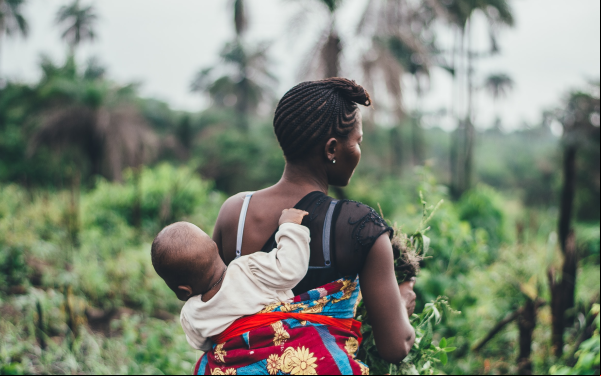
Global South statement on climate finance ahead of COP27
COP27 must reach agreements for an equitable, sufficient and sustainable finance that ensures a just transition. The 26th Conference of the Parties (COP26) of the United Nations Framework Convention on Climate Change (UNFCCC), held in Glasgow, Scotland, was one of the most important conferences for the climate finance agenda. Relevant issues of climate finance, such as access, balance and long-term vision, were at the heart of the finance agenda. Moreover, the already complex discussions were exacerbated in the context of COVID-19 pandemic, causing a growing need for financing in developing countries, particularly in the most vulnerable regions. In this regard, COP27 must take up and agree on pending discussions to move forward with firm steps towards the implementation of the Paris Agreement, which mandates "to make financial flows consistent with a pathway towards low greenhouse gas emissions and climate-resilient development ". The most important aspects that countries must agree on at COP27 in Sharm el-Sheikh, Egypt, are: 1. Financing for a just transition, with a climate justice and gender focus: The Glasgow Pact integrates the concept of climate justice for the first time, but does not associate it with the issue of financing. Therefore, it is essential for COP 27 to recognize that finance is a fundamental means of implementation to achieve a just transition. Resources must be allocated with a climate justice and gender focus to foster an adequate distribution of finance that does not increase gender gaps, that is equitable across regions with a thematic balance. 2. Delivering on the $100 billion goal: At COP26, developed countries presented a progress report on the delivery of the $100 billion goal, which shows that the pledge is still not being met. COP27 should serve not only to present the progress made, but also to agree on a delivery plan that will make it possible to know the timing and instruments through which the financing will be transferred, which should not be less than US$500 billion for the period between 2020-2024. 3. Global stocktake and finance: Discussions at COP 27 on the global stocktake should lead to a better connection between needs and financial flows, as well as access to finance schemes, and address all the obstacles that allowed the adequate mobilization of resources in developing countries. 4. Increased funding for adaptation: At COP26, countries agreed to double adaptation finance by 2025, based on 2019 levels. At COP27, developed countries must present a satisfactory plan regarding how financing for adaptation will be doubled, and establish an ambitious goal to achieve a balance between mitigation and adaptation finance. This goal should aim for at least a 10-fold increase in adaptation finance and the plan should clearly include targeted for the Adaptation Fund. 5. Financing for loss and damage: COP27 should be a milestone for loss and damage finance, achieving agreement on mechanisms to transfer financial resources to countries with the highest needs. On one hand, it is necessary to agree on the creation of a facility that will allow the establishment of medium and long-term goals in this matter. On the other hand, it is also necessary to establish a programmatic scheme in which the countries commit a percentage of their annual allocations to finance losses and damages. This funding should be additional to that earmarked for mitigation and adaptation. 6. A new collective quantified goal based on needs: The technical and high-level deliberations on the new collective quantified goal on climate finance should be based on the recognition of the current financial needs of developing countries. schemes for those that have not quantified their needs should be agreed, so that this information can be incorporated in the next 12 months, towards the 2024 negotiations. 7. Improved access to climate finance: At COP27, mandates should be established for multilateral financial mechanisms to make access to climate finance by local actors easier, faster, and more efficient, creating emergency windows in the event of crises, such as the COVID-19 pandemic. Financial mechanisms such as the Green Climate Fund should innovate in their access schemes, particularly for the most vulnerable populations. 8. Decarbonization of public finances: COP27 must recognize that achieving a just transition and complying with Article 2.1.c of the Paris Agreement entail decarbonizing public finances, both in developed and developing countries. For developing countries, this means accelerating the reduction of their dependence on carbon-intensive revenues, such as those from oil, gas and mining concessions, and the sale of gasoline, diesel and natural gas. A fundamental step is to end fossil fuel subsidies and diversify revenues by promoting domestic investments that a just economic transition, generating new jobs and revenues to invest in national and local needs 9. Debt restructuring and debt-for-nature swaps: At COP27, the importance of mechanisms such as debt-for-nature and climate swaps should be recognized as a way to mobilize more climate finance. The external debt burden is preventing many countries from investing domestic resources to address the problem. International financial institutions and developed countries should facilitate debt restructuring, including debt-for-protection schemes, as a way to mobilize more climate finance, allowing developing countries to invest these resources to reduce emissions and increase resilience by protecting biodiversity, ecosystems and all livelihoods for global benefit. 10. Towards transformational finance: COP27 should mark a milestone in the understanding and mobilization of climate finance, starting with the assumption that current climate finance schemes will not help change the condescending dynamics that have existed within the framework of international cooperation. Combating climate change requires the transformation of economic systems, real collaboration and solidarity, in which it is not only the amount of finance mobilized that matters. The quality of these resources should beequally important to ensure finance reaches those that need it the most, without generating additional burdens on women and vulnerable groups. It is time to transform the finance paradigm to make it more effective, fair and truly sustainable. Adhere to: AIDA Barranquilla +20 CEMDA Chile Sustentable Defensoría Ambiental Fernando Aguilera Fundación Hábitat Verde Fundación Plurales GFLAC Hub’s de Finanzas Sostenibles de GFLAC Instituto de Derecho Ambiental y Desarrollo Sustentable (IDEADS) Instituto Talanoa La Corporación La Caleta OLAC Plataforma CIPÓ Red Mundial de Jóvenes Políticos - Santa Cruz Bolivia
Read more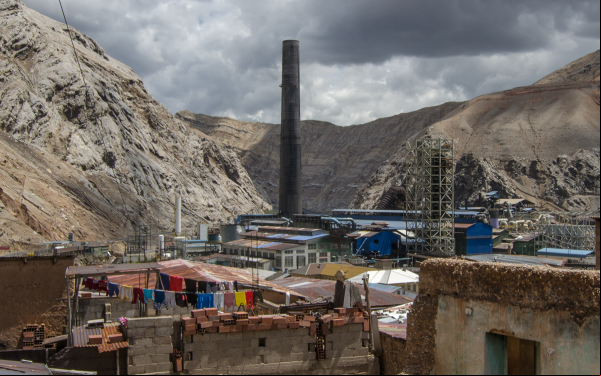
With La Oroya case, the Inter-American Court may set a key precedent for protecting a healthy environment in Latin America
On October 12 and 13, the international court will hear the case of people affected by toxic pollution in La Oroya, Peru. Beyond reestablishing the rights of the victims, the court’s eventual decision marks an historic opportunity to strengthen the protection of the right to a healthy environment in the region and to encourage States to adequately supervise corporate activities. Montevideo, Uruguay. On October 12 and 13, the Inter-American Court of Human Rights will hear the case of residents from La Oroya, Peru, whose fundamental rights have been violated for decades due to heavy metal contamination from a metal smelting complex. The hearing will take place during the 153rd Session of the Court, to be held October 10-21 in Montevideo, Uruguay. Last October, 15 years after the international lawsuit against the Peruvian State was filed, the Inter-American Commission on Human Rights—in it’s decision on the merits of the case—established the Peruvian government’s international responsibility in the violation of the human rights of the residents of La Oroya, and referred the case to the Inter-American Court. At the hearing next week, as part of the process of drafting their ruling, the judges of the court will hear from witnesses, experts, and victims, as well as from State representatives. As organizations that have legally represented and accompanied the group of victims since the beginning of the case, the Interamerican Association for Environmental Defense (AIDA) and the Pro Human Rights Association (APRODEH) will bring to the court strong arguments, ed by legal and scientific evidence, to defend the rights of the affected people. After a decades-long search of justice, the case is important not only for the community of La Oroya, but for all people affected by corporate activities across the continent. In addition, the case is representative of a serious political, social and environmental situation that has not been considered by national, regional and international politics. The current conditions prevent the citizens of La Oroya from having healthy prospects for the future. There exists a real need for justice and mobilization to generate a strong recognition of economic and environmental alternatives for the direct and indirect victims. Liliana Avila, senior attorney at AIDA, explains the context of the case and emphasizes the importance of a favorable and forceful decision by the court: "The La Oroya case before the Inter-American Court puts an end to more than 20 years of waiting in the search for justice and reparations for those whose lives were drastically changed by historic exposure to toxic contamination. It is a milestone for the Inter-American Human Rights System because it will be one of the first cases to centrally address the indivisible relationship between a healthy environment and other fundamental human rights such as life, health and personal integrity. It constitutes a unique opportunity to set a regional and global precedent for the protection of the right to a healthy environment and compliance with the obligations of States to adequately supervise corporate activities, as well as to guarantee the special protection of children, girls, women, the elderly and other vulnerable groups.” Gloria Cano Legua, executive director of APRODEH, refers to the urgency of a decision that grants justice and reparation to the people of La Oroya: "The victims have had to see how the State, through various governments, has disregarded its obligations, while their health problems have worsened. The indifference and sometimes hostility with which they have been treated has offended their dignity". PReSS S: Víctor Quintanilla (AIDA), [email protected], +525570522107 Gloria Cano Legue (APRODEH), [email protected], +51 964 809 193 Christian Huaylinos Camacuari (APRODEH), [email protected], +51 959 789 232
Read more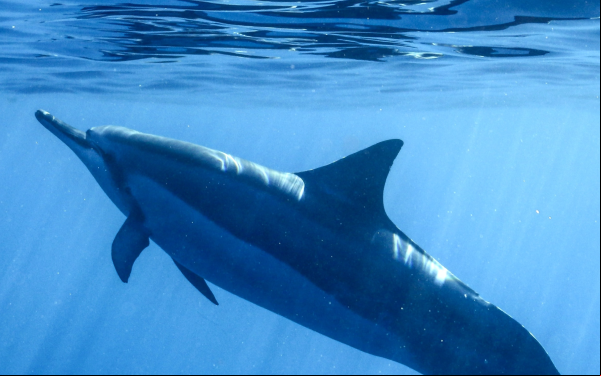
Ambition and urgency needed as high seas treaty negotiations near end
New York: With only one week to go in the negotiations for a new Treaty to protect two thirds of the ocean - the High Seas - civil society is raising alarm about the level of urgency and ambition towards a robust outcome for the ocean. A number of States have made public commitments to secure an ambitious Treaty at this final scheduled session, but there is concern that this is not being fully reflected in the formal negotiating room. The High Seas Alliance (HSA) expects more ambition to be shown by the United Kingdom, the European Union, Canada and the United States which have been public champions for the ocean, including at the recent UN Ocean Conference. These delegations some progressive positions within the Treaty negotiations, but too many appear to be maintaining positions that will not result in the transformation we need for a healthy and productive ocean for current and future generations. Some states and groups are pushing for a strong outcome. CARICOM, (the Caribbean Community), the Pacific Small Islands Developing States, New Zealand, Costa Rica and Monaco are setting the pace for a speedy and effective outcome. This round of negotiations, known as IGC5, is the fifth and final scheduled meeting convened by the UN General Assembly. It is tasked with concluding a Treaty to protect Biodiversity in Areas Beyond National Jurisdiction, which includes the High Seas, and which makes up half the planet, two thirds of the ocean. For decades, the international community has struggled to reach this agreement during which time climate change and biodiversity loss have escalated. The HSA recognises that the “package” of elements under negotiation are intrinsically linked and critical to successful completion of the negotiations. “The greatest opportunity of our generation to show we are serious about protecting the global ocean is now. A strong High Seas Treaty is in reach but more ambition is needed. Governments must stick to their commitment to deliver a truly ambitious Treaty this week and finally move to taking action that will allow the ocean to recover and thrive; for marine biodiversity, Earth’s climate and the well-being of generations to come. There is no more time to waste. - Sofia Tsenikli, Senior Strategic Advisor to the HSA. QUOTES FROM MEMBER ORGANIZATIONS CANADA Susanna Fuller, VP Operations and Projects, Oceans North: "With the longest coastline in the world and as a self-declared ocean champion, Canada plays a vital role in achieving a strong Treaty. We are hoping to see Canada’s ambitions meet the urgent need for biodiversity protection and responsible management for 50% of the planet. With climate change impacts accelerating and biodiversity loss increasing, finalizing and implementing this Treaty cannot come fast enough." LATIN AMERICA Gladys Martínez de Lemos, Executive Director, AIDA (Interamerican Association for Environmental Defense): "Most Latin American countries have publicly stated their commitment to increase marine protected areas by 30% by 2030. This cannot be achieved without an ambitious High Seas Treaty. In addition, 70% of the areas that would not be protected need a high-level environmental impact assessment process with capacity and implementation. During all the negotiations Costa Rica has shown its commitment to a robust and ambitious Treaty. We thanked Costa Rica for its exemplary championship along these years." SOUTH KOREA Jihyun Lee, High Seas Alliance Youth Ambassador and undergraduate student at Yonsei University, South Korea: "Youth and future generations demand a strong and meaningful High Seas Treaty that will effectively protect the ocean. We are calling in unified for world governments to finally take bold action for our ocean." US Lisa Speer, NRDC: “We applaud the more progressive approach of the United States, which has been a strong advocate for concluding the negotiations in a timely fashion, and for strengthening environmental assessment. However, we need the US to show more leadership to ensure that the new Treaty will result in the creation of a science-based network of fully protected areas in all areas of the High Seas, which scientists tell us is essential to reversing the decline of the ocean." EU + UK Laura Meller, Protect the Oceans campaign, Greenpeace: "It’s deeply concerning that the European Union and UK continue to insist on maintaining a broken status quo when it comes to creating ocean sanctuaries on the High Seas at this round of negotiations. The bloc and the UK must raise their ambition in the last days of negotiations if they truly want to be global ocean champions, and ensure that a strong Treaty which has the power to create properly protected ocean sanctuaries on the High Seas is finalised this week. If they don’t, their fine words in the run up to these negotiations will be little more than empty rhetoric. The oceans are in crisis. We need ambitious, urgent, action before it’s too late." PSID + CARICOM Travis Aten, Programme Officer, HSA: "We continue to applaud the Pacific Small Island Developing States (PSIDS) and the Caribbean Community’s (CARICOM) continued leadership during this negotiation process, notably through their of robust and ambitious conservation positions. As islands that are surrounded by the ocean, it is clear to them that this Treaty must move beyond the current status quo and implement real change on how we manage biodiversity of the High Seas." Fabienne McLellan, Managing Director, OceanCare: “It is encouraging to see that there is an increased spirit of urgency in the room. Many negotiators are rolling up their sleeves, aware that the world is watching to judge if the rhetoric on ocean commitments made in the lead up to this conference is translating into the Treaty text. While unfortunately some of the Treaty text elements are being watered down, it is not yet too late to make a turn around. Cementing the status-quo and the lowest common denominator is not good enough. We need an ambitious and implementable Treaty. The state of emergency of the ocean demands nothing less. NOTES Covering nearly half of the world’s surface, the High Seas—a true global commons—is only protected by a loose patchwork of poorly enforced rules that are ill-suited to address a growing onslaught of pressures to the water column and seabed below, including climate change, pollution, fishing, and emerging activities like deep-sea mining and bioprospecting. The negotiations began in 2018 and have since benefited from increased scientific and political awareness of High Seas marine life and habitats, as well as the dangers they face from human activities. For instance, until relatively recently, “High Seas” were considered to be largely devoid of life or too remote to face serious threats from overexploitation. Today, scientists have shown that they marine systems that are vital to the global food supply, terrestrial ecology, and stability of the climate system. SPOKESPEOPLE Latin America Mariamalia Chavez (Spanish, English), [email protected] Gladys Martínez de Lemos (Spanish, English), AIDA, [email protected]
Read more
AIDA applauds recognition of healthy environment as a universal human right
The decision adopted by the UN General Assembly is a call for States to recognize that the defense of the environment is essential for existence on the planet. The historic resolution strengthens longtime efforts to guarantee this right in practice. New York, USA. In a landmark resolution, the UN General Assembly recognized a safe, healthy, clean and sustainable environment as a universal human right. Since this right was absent from then Universal Declaration of Human Rights in 1948, the decision marks a milestone for international human rights law. The resolution endorses language similar to that proposed in October 2021 by the UN Human Rights Council, which issued a draft resolution in June to the 193 of the General Assembly. Sponsored by Costa Rica, Maldives, Morocco, Slovenia and Switzerland, the universal recognition of the right to a healthy environment was unanimously approved today, by a vote of 161-0. Liliana Avila, senior attorney of AIDA’s Human Rights and Environment Program, responds: "The United Nations recognition is a very important call for States to recognize that the environment involves essential elements without which our existence on the planet would not be possible. Most of the Constitutions in the continent already recognize the healthy environment as a right and citizens claim it daily through different mechanisms. The step taken today undoubtedly strengthens these efforts and advances us towards the construction of societies where this right is a reality." Gladys Martinez de Lemos, Executive Director, states: “Today marks a historic moment, one that enables citizens to demand the creation of measures to guarantee in practice a right that is now universally recognized. At AIDA we celebrate this new tool and reaffirm our 25-year commitment to protecting a healthy environment as a fundamental human right. The UN recognition represents a hope for justice for those who suffer from environmental degradation around the world—people like the residents of La Oroya, Peru, who have for decades breathed polluted air; families in Central America, forced to migrate due to the impacts of the climate crisis; coastal communities in the Caribbean who lost their homes due to the destruction of mangroves and reefs, natural barriers against storms and hurricanes; and the thousands of environmental defenders risking their lives to protect their territories." As a regional organization, AIDA would like to highlight the fact that a Latin American nation, Costa Rica, has led the proposal for recognition before the General Assembly. Its role was key to the result we are celebrating today. We also highlight the hard work of civil society organizations, social movements, local communities and indigenous peoples to promote this recognition. A healthy environment – recognized as a right by more than 150 States around the world – is a prerequisite for the realization of other human rights. Its recognition as a universal human right can lead to more effective laws and policies, and can help to empower local communities in the protection of their territory. Press : Victor Quintanilla (Mexico), [email protected], +525570522107
Read more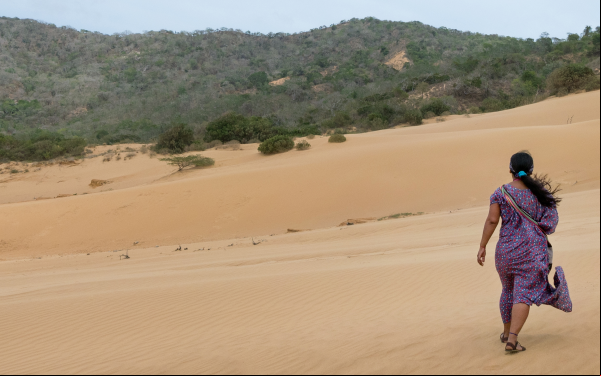
Irish company buying Colombian coal to be investigated for lack of due diligence with regard to human rights
The OECD accepted a complaint filed by civil society against the Irish state-owned company ESB for its failure of responsible business conduct in the purchase of coal from Cerrejón. The National Point (N) for the Organization for Economic Cooperation and Development (OECD) in Ireland agreed to evaluate the complaint filed against an Irish state-owned company, The Electricity Supply Board (ESB), for its lack of due diligence on human rights. ESB is a buyer of coal from Carbones del Cerrejón, the operator of the largest open-pit coal mine in Latin America. The complaint was filed in January 2021 by a coalition of national and international organizations, including CAJAR, CINEP, AIDA, GLAN, ABColombia, Ask, and Christian Aid. The complaint also had the of several leaders of Wayuu and Afro-Campesino indigenous communities that have been historically affected by this extractive coal mining megaproject. For years ESB, considered Ireland's largest energy company, has purchased coal from the Cerrejón mine, located in La Guajira, Colombia, for use in its Moneypoint power plant in County Clare. The complaint alleges non-compliance by the company, as the purchaser, with the OECD's standards of due diligence and responsible business conduct in environmental and human rights matters. In addition, the complaint alleges that ESB has failed to take the necessary actions to influence Carbones de Cerrejón's own due diligence in identifying, mitigating, and preventing human rights abuses linked to the mine. This failure comes despite well-documented evidence of serious violations against Wayuu and Afro-Colombian indigenous communities, including environmental impacts and threats to human rights defenders. Following an initial assessment of the complaint, the Irish government's N released an initial statement on Monday, July 18, stating that it found sufficient grounds for further examination of the issues raised. From the perspective of the denouncing organizations, the purchase of Colombian coal by ESB has been made in spite of the company having been aware of ample evidence of serious human rights violations and environmental impacts in the territory of indigenous Wayuu and Afro-descendant communities. The company itself, on its official website, stated: "ESB is well aware of Colombia's difficult history that has had serious impacts on its population for many years. We are also aware of the issues reported in the media regarding the Cerrejón mine, many of which are related to Colombia's past. We are committed to remaining attentive to all of these issues and will continue to work with Bettercoal to influence and drive improvements. We bring these issues to Bettercoal for assessment as a matter of course." Although ESB had indicated that it stopped buying coal from Cerrejón in 2018 because of human rights violations, it recently announced that in the wake of the Russia-Ukraine war it was resuming its purchase of this coal for the coming months. "Six years ago, Ireland stopped buying Colombian coal, citing human rights concerns, and turned to Russia for the fossil fuel. Now, the European nation has resumed purchases from Colombia." On his recent visit to La Guajira in April of this year, Irish TD Gary Gannon criticized ESB for restarting coal imports from Cerrejón. Gary Gannon, who traveled to Colombia in April as part of the parliamentary delegation, said he had seen with his own eyes the devastating environmental impact of the mine and the pain of the indigenous communities displaced from their land for its expansion. "There is a disturbing double standard in this return to Cerrejón," he said. "We rightly say no to Russian coal after the invasion of Ukraine, recognizing the impact our business decisions can have on human rights. But that standard must apply everywhere, including Colombia." In the words of Wayuu leader Jakeline Romero Epiayu: "European countries, with total hypocrisy, send us messages of decarbonization, of abandoning the use of fossil fuels; but suddenly they put Colombia and La Guajira back in their focus to buy this coal that they continue to need, this coal that we have tirelessly said is stained with blood, stained with the lives of Wayuu men, women, boys, and girls." The complaint requested, among other recommendations, that ESB: end its commercial relationship with the purchase of Colombian coal, issue a public statement acknowledging the need for its cessation, request the mine's parent companies initiate progressive closure of the mine and remediate its impacts, compile and publish an effective human rights policy, and issue a formal apology to the affected communities. Following the issuance of this initial assessment, the Irish N will formally ask the parties if they are willing to participate in mediation, with the objective of reaching a resolution to the issues raised in the complaint. The goodwill offer is voluntary for both parties. If a mediated solution is not possible, the Irish N will conduct a review of the complaint. The outcome will be reflected in a Final Statement which may include recommendations on the implementation of the OECD guidelines. The Irish N also noted that it is still processing another complaint against CMC Coal Marketing Company, a Dublin-based company responsible for the marketing and sale of coal from the Cerrejón mine. In the wake of the war between Russia and Ukraine and the current context of increasing demand for Cerrejón coal, this complaint sends an important message that countries and companies that buy this coal must continue meeting their obligations with respect to human rights and corporate due diligence duties. José Alvear Restrepo Lawyers' Collective Center for Research and Popular Education Interamerican Association for Environmental Defense (AIDA) press : Víctor Quintanilla (Mexico), AIDA, [email protected], +525570522107
Read more
In regressive decision, high court endorses fracking in Colombia
Bogotá, Colombia. Colombia’s highest istrative court, the Council of State, on Thursday ruled against a lawsuit that sought to nullify the government’s regulation of fracking, effectively endorsing the controversial technique’s implementation in the Andean nation. The nullity lawsuit was filed by the Public Interest Law Clinic of the Universidad del Norte—which was tly advised by AIDA, Corporación Podion, and the legal clinics of Universidad Javeriana and Universidad de los Andes—in an attempt to challenge the legality of the rules that would allow for fracking operations in the country, found in 2013’s Decree 3004 and 2014’s Resolution 90341. This decision means the suspension of Colombia’s judicial moratorium on fracking, which has been in place since 2018, when the when the Council preventively suspended the rules based on the precautionary principle and due to the lack of certainty about the risks of irreversible damage that the technique implies for the environment, climate and public health. Fracking has been assessed by national and international academics and scientists as an experimental technique that threatens air, water, human health, democratic participation, social fabric and culture, traditional knowledge systems, biodiversity and, in the long term, economic, seismic and climatic stability. In addition, it creates atmospheric pollution due to the emission of methane—a potent gas whose warming potential is 84 to 87 times greater than carbon dioxide on a 20-year scale. While the Council of State's ruling ratifies the government's regulations and lifts the moratorium, it does not exonerate national and local authorities from protecting the environment and respecting the fundamental rights of the population as they consolidate the mining and energy policy. Legal experts who brought the case before the Court respond to the ruling: "In Latin America and around the world, many countries have banned fracking because of its impacts on the environment and on the protection of human rights. The ruling of Colombia’s Council of State is regressive and goes against international advances on environmental, climate and human rights issues.” - Yeny Rodríguez, attorney with the Interamerican Association for Environmental Defense (AIDA) "The Council of State has issued a decision contrary to the facts proven in the litigation. They have ignored the survey conducted by the National University of Colombia, the report of the expert commission, the concept of the Attorney General's Office, and the rest of the documentary evidence and scientific texts that clearly demonstrated the need to prohibit this technique under the precautionary principle. In addition, the ruling ignores Colombia's international climate commitments and the principle of intergenerational solidarity, as it ignores the fundamental rights of future generations." - Juan Pablo Sarmiento, plaintiff’s attorney in the case. “The Council of State lost a great opportunity to strengthen, through the courts, a regulation that many experts considered too weak to protect the environment and public health. Its now is in the hands of the national government and the legislature to guarantee society the protection of the precautionary principle and democratic participation in environmental matters" - Juan Felipe García, attorney with the Law and Territory Clinic of the Universidad Javeriana “The decision of the highest istrative court in the country is not an open invitation to carry out fracking in Colombia. The government must fully guarantee the right to participation and the voice of communities in decision-making about projects that may generate environmental impacts in their territories, as well as guarantee the safety and protection of environmental leaders who defend their territories". - Silvia Quintero, legal advisor to the Environmental and Public Health Legal Clinic of the Universidad de Los Andes “The lifting of the judicial moratorium on fracking leaves open the possibility of moving forward with such projects whose contracts were previously suspended. It’s necessary that fracking have a social license because several regions of the country have been considered as potential areas for its implementation." - Lizeth Gómez, attorney with Corporación Podion os de prensa: Juan Pablo Sarmiento, [email protected], +573005514583 Yeny Rodríguez, AIDA, [email protected], +573107787601 Juan Felipe García, Clínica en Derecho y Territorio de la Universidad Javeriana, [email protected], +573125588889 Lizeth Gómez, PODION, [email protected], +573176430036
Read more
AIDA celebrates WTO agreement to curb harmful fisheries subsidies
We consider the agreement a "crucial step" for the sustainability of fishery resources in the short, medium and long term, as well as for ensuring food security and the livelihoods of coastal communities. Geneva, Switzerland. As an environmental organization that has closely followed the negotiations to limit global fisheries subsidies, the Interamerican Association for Environmental Defense (AIDA) applauds that member countries of the World Trade Organization (WTO) reached, after more than two decades, a binding agreement to curb some harmful fisheries subsidies. It represents a fundamental step toward achieving the effective management of our fisheries resources, as well as toward ensuring global food security and the livelihoods of coastal communities. "This is a crucial step towards ensuring the sustainability of fishery resources in the short, medium and long term," said Gladys Martinez de Lemos, executive director of AIDA. "We urge the 164 member countries of the WTO to ratify the agreement as soon as possible, and to implement the necessary changes derived from it to contribute significantly to the health of marine life and the well-being of those who depend on it." It is estimated that, each year, governments spend approximately $22 billion in negative subsidies to offset costs for fuel, fishing gear and vessel improvements, among others. As a result of that , 63 percent of fish stocks worldwide must be rebuilt and 34 percent are fished at "biologically unsustainable" levels, according to recent data. The agreement reached at the 12th WTO Ministerial Conference, held June 12-16, provides for the creation of a global framework to reduce subsidies for illegal, unreported and unregulated fishing; subsidies for fishing overexploited stocks; and subsidies for vessels fishing on the unregulated high seas. The high seas fishing provisions represent an achievement for Latin America, a region whose fishing industry is severely threatened by aggressive foreign fleets fishing inside and outside of national jurisdictions. The agreement also includes measures aimed at greater transparency and ability in the way governments their fisheries sector. The countries agreed to continue negotiating rules to curb subsidies that promote fishing in other countries' waters, overfishing and the overcapacity of a fleet to catch more fish than is sustainable. "This agreement is one part of the movement we need at the international level to contribute to the health of the ocean," explained Magie Rodríguez, AIDA attorney. "We have three more to go: the high seas treaty, more ambitious and rigorous standards for ocean mining, and recognition of the key role the ocean plays in the climate crisis. We will continue to work with our allies to achieve these goals.” Although negotiations on fisheries subsidies officially began in 2001, it was not until the 2017 WTO Ministerial Conference that countries committed to taking action to reach an agreement at the next conference—which was to take place in December 2020, but was suspended due to the pandemic. This commitment also responds to the fulfillment of target 14.6 of the United Nations Sustainable Development Goals. In 2021, the Ministerial Conference failed to reach an agreement, but it did reach a draft text. "This year's achievement would not have been possible without the t efforts of many different organizations, academia, governments and the private sector," said Martinez. press Victor Quintanilla (Mexico), [email protected], +525570522107
Read more